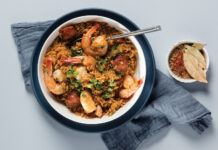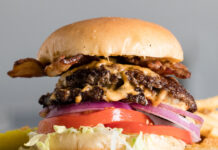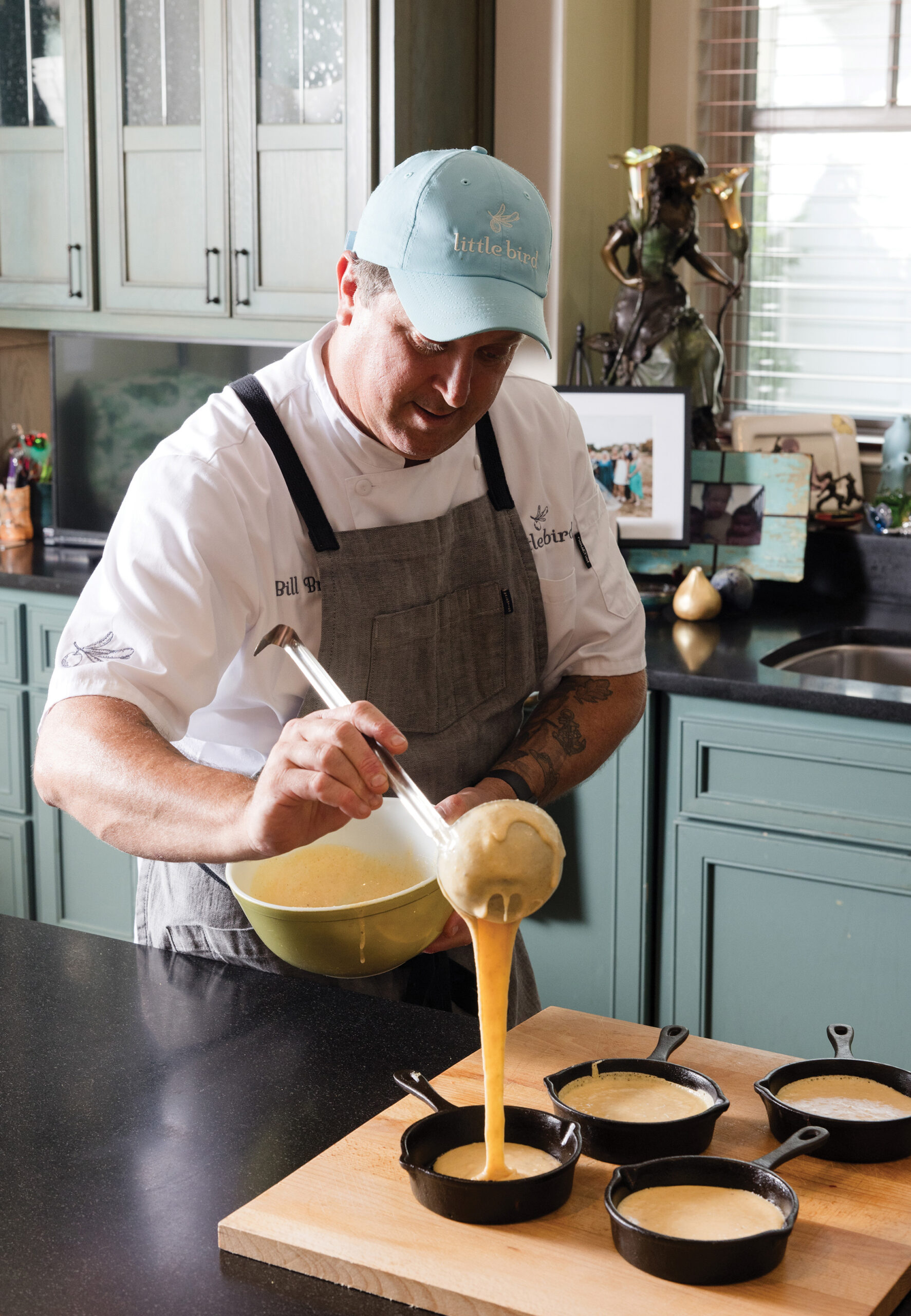
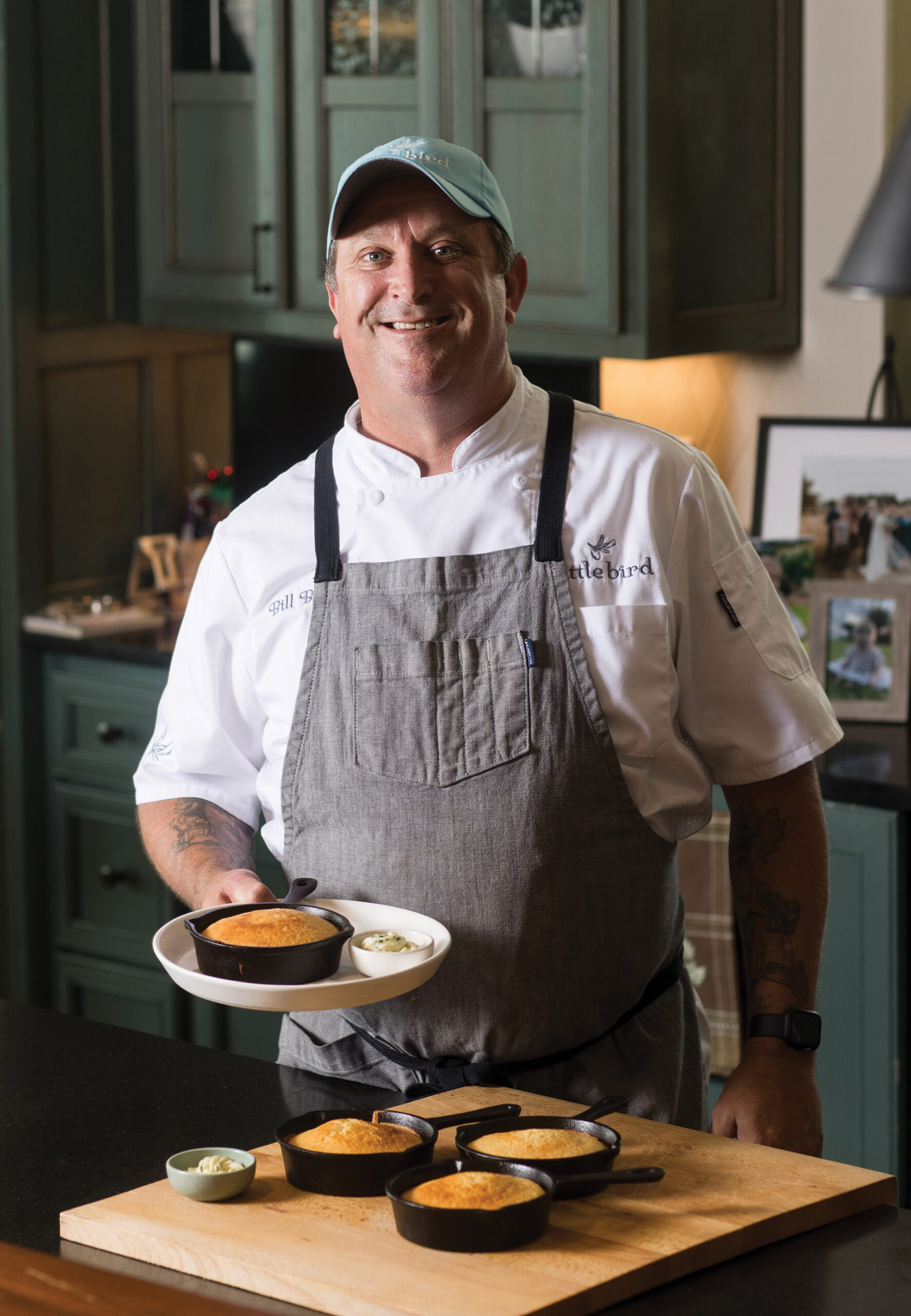
Chef Bill Briand’s mother is never far from his kitchen. She cooks with him, helping him flick his whisk and adjust his seasonings, even guiding every knife cut of the James Beard Award nominee. She puts her touch on every plate, and her marks are on each of his recipes. Though she passed away years ago, she is still felt and seen and deeply loved. She endures in the restaurant that honors her name, the memories of the people who cherished her and the portrait of her inked on the length of her son’s arm.
Before Virginia Briand was a presence in her son’s kitchen, she brought him into hers. He learned at the hem of her apron that cooking with intention made meals something reverent. Bill’s father ran a Navy marine hospital, and his mother had served as a nurse before stepping away from her career to focus on her family. Military life meant long hours and frequent moves, so the time they had together in the evenings was something the family didn’t take for granted. “Living on the military base, we didn’t have access to a lot of great food, so my mom would go and find it,” says Bill. “She’d go to the farmer’s markets before they were cool or the closest dock to buy shrimp because that was important to her. We might spend an entire day working on getting everything together so we could enjoy those two hours at the end of the day together.”
Being in a military family took Bill across the map, from Great Britain to Washington D.C. to Hawaii. With each new place came new experiences and flavors, but his mother’s way of cooking was a constant that created a sense of being rooted in place.
“When we lived in Hawaii when I was a child, we would drive through the night to this beach, and my mom would set up her hibachi underneath the trees and cook us breakfast, lunch and dinner,” Bill says. “She would lay out blankets and we would play in the water all day, and she would call us in to eat. We did that every two to three weeks — drive through the night to the beach and play from sunup to sundown. Then we’d get back in the van and sleep all the way back home. Those are probably my favorite food memories.”
The Briands’ beach ritual was among many culinary adventures. Through scarcity of variety of ingredients available on base, Virginia learned that good food was worth adventuring for, even if it was for something most would consider humble. “My mom was an avid fish and chips lover,” says Bill. “I remember getting in the car and driving six hours in one direction because the best place that was ‘close’ for fish and chips was six hours away. But we thought of it as an adventure. That’s just who she was.”
At one point, the Navy gave the Briands a choice for their next move: tropical Guam or soulful New Orleans. Guam may have been a bolder choice, but New Orleans was more familiar — a place that felt like home. Still, New Orleans had its own sights and wonders, especially for a food enthusiast like Virginia. “We got there, and my mom immediately started going to restaurants,” says Bill. “She’d say, ‘Your dad’s going out of town. We’ll go to dinner.’ Anytime we could sneak away to eat, we would.”
Dinners on the town were only a part of the gastronomic education Virginia gave her son. He was raised in the kitchen. Bill studied and eventually emulated his mother, learning to sear and season alongside her. Virginia’s enthusiasm for fresh ingredients and entertaining was contagious, and in the culinary mecca that is New Orleans, Bill’s excitement for food only grew. Virginia noticed his culinary passion and decided to foster his talents beyond what she thought she could teach him.
One afternoon, while chauffeuring Bill around the city to drop off job applications, she parked the car near Emeril’s restaurant and told him to get out of the car. “I thought it was too big of a restaurant for me. I didn’t really want to go in,” says Bill. “She turned the car off and said, ‘Go knock on the back door. We’re not going to leave until you do. You’re too good.’ So, I did it, and that’s how I got my first real cooking job. She did her ‘Virginia Briand push’ thing, but I needed that. It was good for me.”
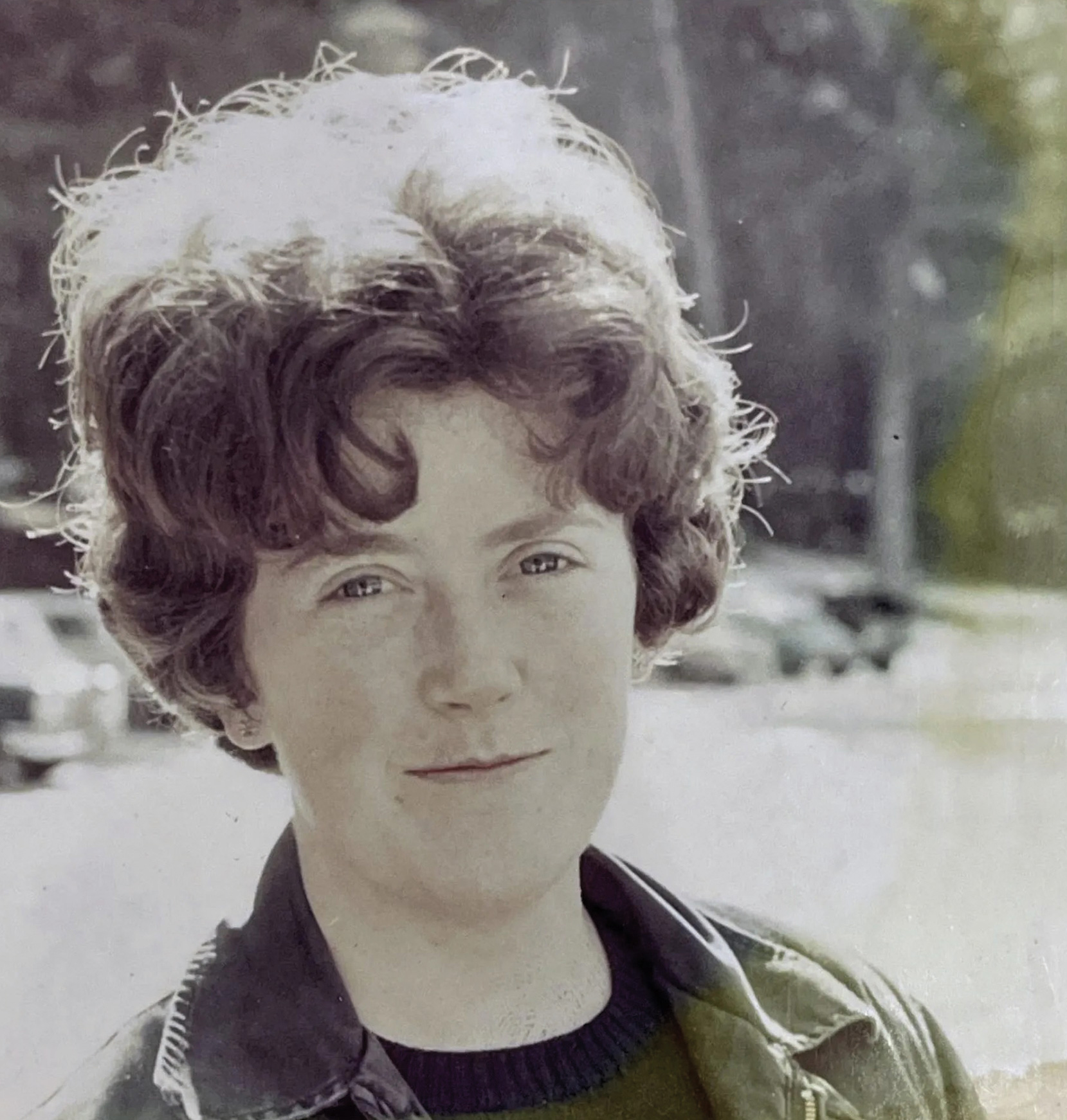
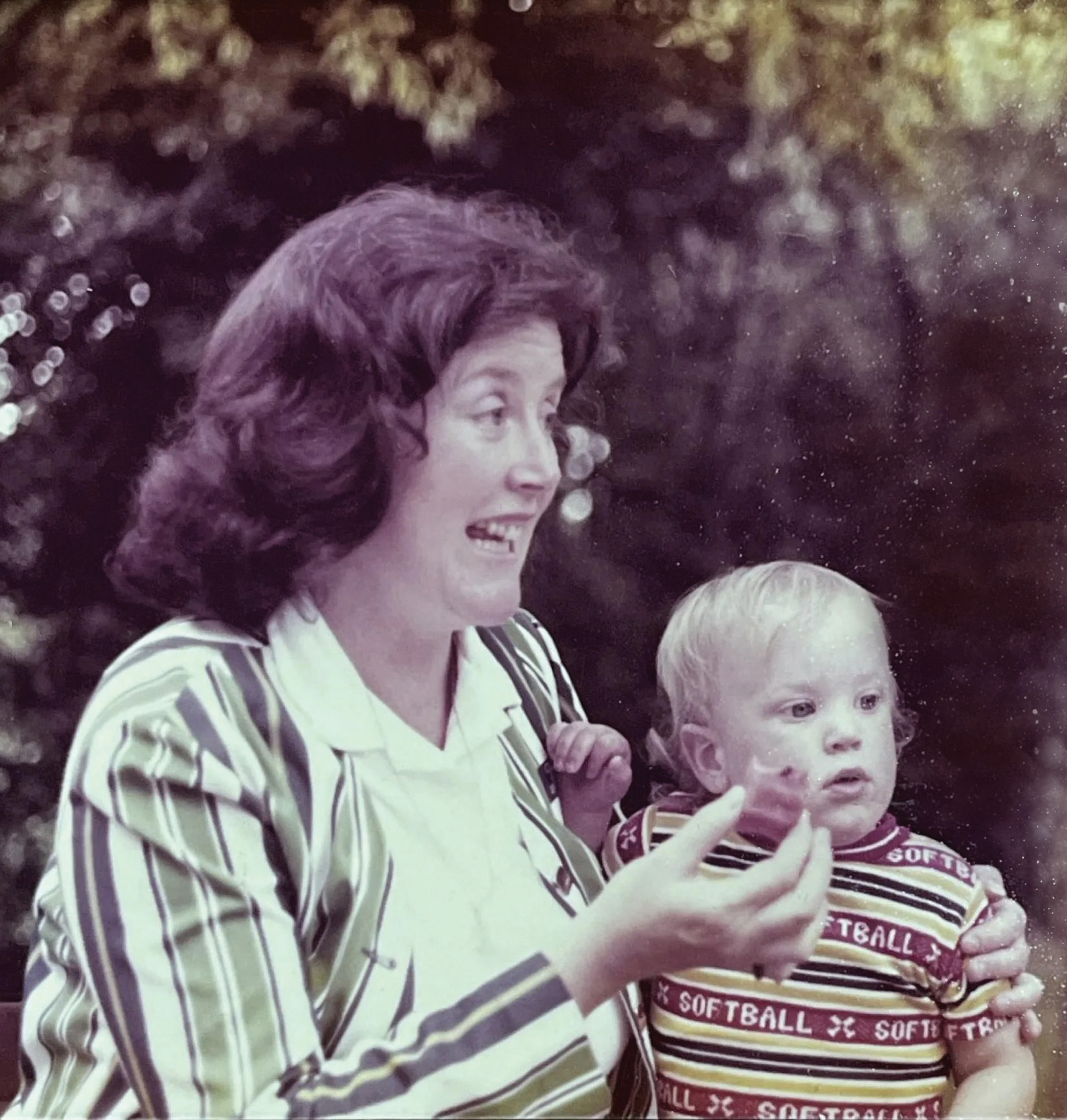
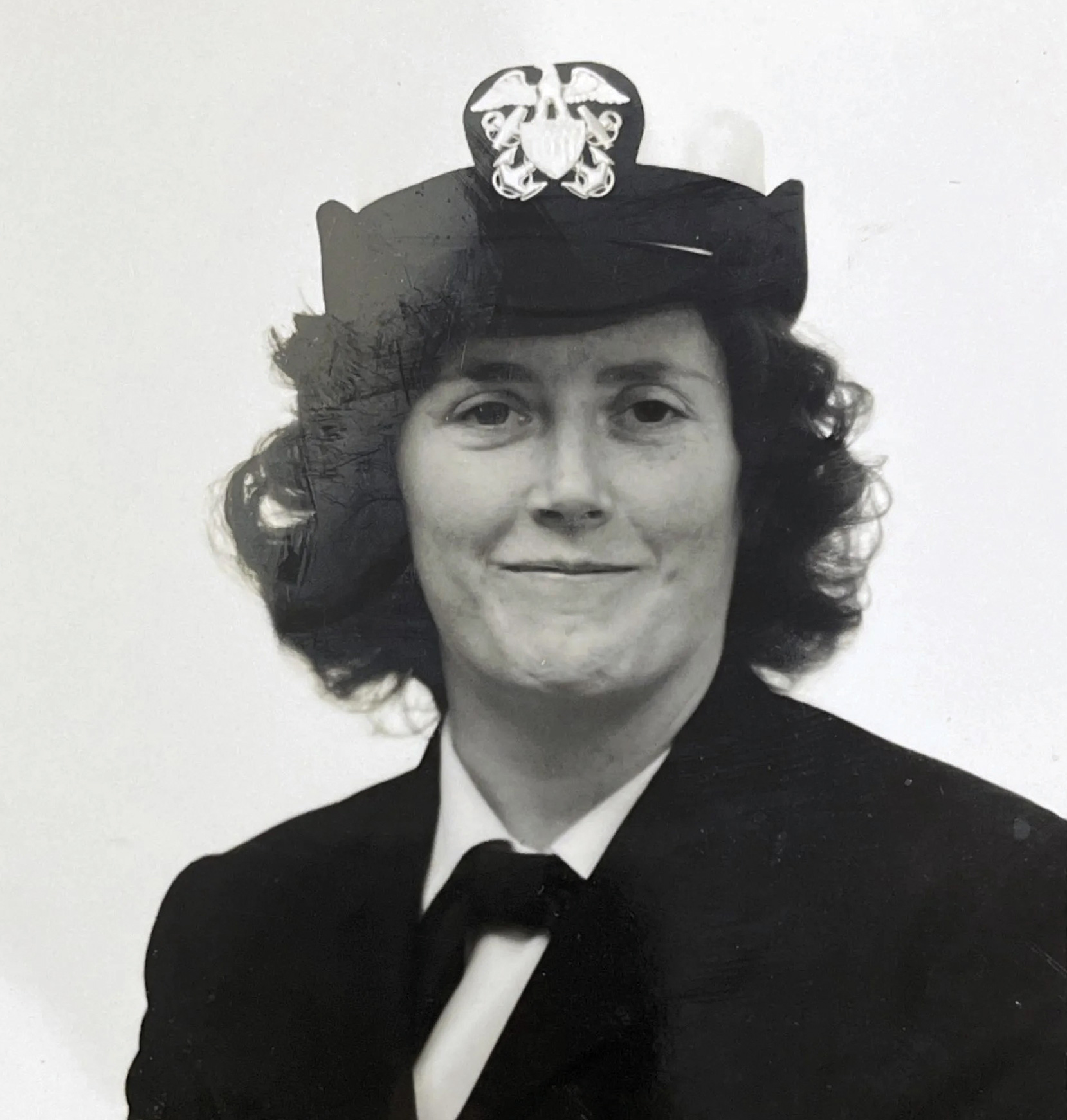
Bill wasn’t given a chef’s toque right away. He honed his skills and moved through the kitchen ranks one station at a time, eventually earning a slot at a prestigious culinary school. But by then, he’d proven himself to be too talented in the kitchen to lose. “I had a full ride to the New England Culinary Institute, but I would have had to leave Emeril’s to go. He asked me not to,” says Bill. “Instead, I would go in every day to do something different or ask them to teach me something like how to cook different proteins. I worked every station in that kitchen, and I was in kitchen management training there before I left. And I had notebooks full of stuff because I wrote down everything I did.”
Bill wasn’t the only Briand recording their cooking journey. Virginia had her own archive of documents about the meals she made, albeit less formal than her son’s. “She wrote everything down. I mean, she catalogued everything,” Bill says. “She’d tweak things here and there, but she’d always put little notes in the corners with what she did. I think at one point she tried to put her recipes all in one place, like on those recipe cards, but she didn’t keep up with that. She recycled paper — it might be the back of an envelope. I keep some of her cookbooks in plastic Ziploc bags because they’re shredded because she used them until they fell apart. And those — the ones with all the notes and the stains from being used over and over again — are the recipes I care about more than anything.”
Eventually, Bill became a renowned chef, though he’d be the first to say he’s not sure he ever usurped his momma as the stovetop sovereign. He began offering small suggestions for tweaking his mother’s recipes. His mother had some opinions about that. “She didn’t like it when I’d try to make changes to one of her recipes,” Bill laughs. “For the most part, they weren’t big changes. I’d ask her something like, ‘What if we add a little Maldon salt on the top of this cornbread.’ Most of the time, she was okay with it, but she didn’t always like it. And she told me about it — what she liked and didn’t like — but I needed that.”
Bill’s friends quickly learned what he already knew: time with his mom meant good drinks, great food and wonderful company. “When I started out, my cooking buddies from different restaurants would come with me to my mom’s house, and we’d pile in her kitchen and just start cooking.” he says. “My friends all loved her. We’d get together somewhere and she would show up with martinis or her shrimp salad, and she’d be a part of our dinner. She was always invited, and she’d either show up or she didn’t. And when she showed up, it was always more of a party.”
Everyone who cooked with Bill eventually learned about Virginia. Some even took time to thank her in ways that still move him today. “There’s a pretty good collection of cookbooks that I got signed for her from people that I came up with and became famous chefs. They all wrote her really nice letters to her in the front covers saying how great I am and how much I love her cooking that kind of got me to where I am. I can’t look at those very much. They’re real tear-jerkers.”
Their relationship shaped his life as much as his cooking style. Bill says that, looking back, his relationship with his mom might have made him a chef in the first place. “She moved from being my mother to being a cooking buddy to me,” says Bill. “Cooking at her house, my mom and I got really, really tight. I’m so glad that happened. It was all about food and all about us, just cooking and learning and enjoying each other. You know, I made her last meal before she passed. Food was just how we bonded.”
When it came to conceptualizing his newest restaurant with The Hope Farm’s Robert and Bentley Evans, Bill knew exactly what it would be. Everything about it, from the atmosphere to the menu, is an homage to his mother. Even the name is inspired by hers: Eileen, which is loosely translated from the Gaelic word for “little bird.” “I have a living memory that I can walk into every day,” Bill says. “We created little bird so people can come and experience some of that. People can come with their families and create their memories too. The most important part of a meal is the people you share it with.”
Breaking from the old-school, severe kitchen mentality, Bill leads with kindness, encouragement and what he calls the “maternal spirit” he admired in Virginia. He believes that harshness doesn’t improve food, but that passion and positivity do. The culinary world is changing for the better, and he’s proud to be part of that shift.
“I’m trying to be the best I can be for the people around me. Being a true leader is about focusing on what really matters. It’s made me a much happier person,” says Bill. “I want someone who’s worked for me to go on to do something crazy. When I can’t do this anymore, I’d love to know that someone that cooked with me is off chasing their dream. I think that would make me happier than anything.”
Momma Briand’s Cornbread
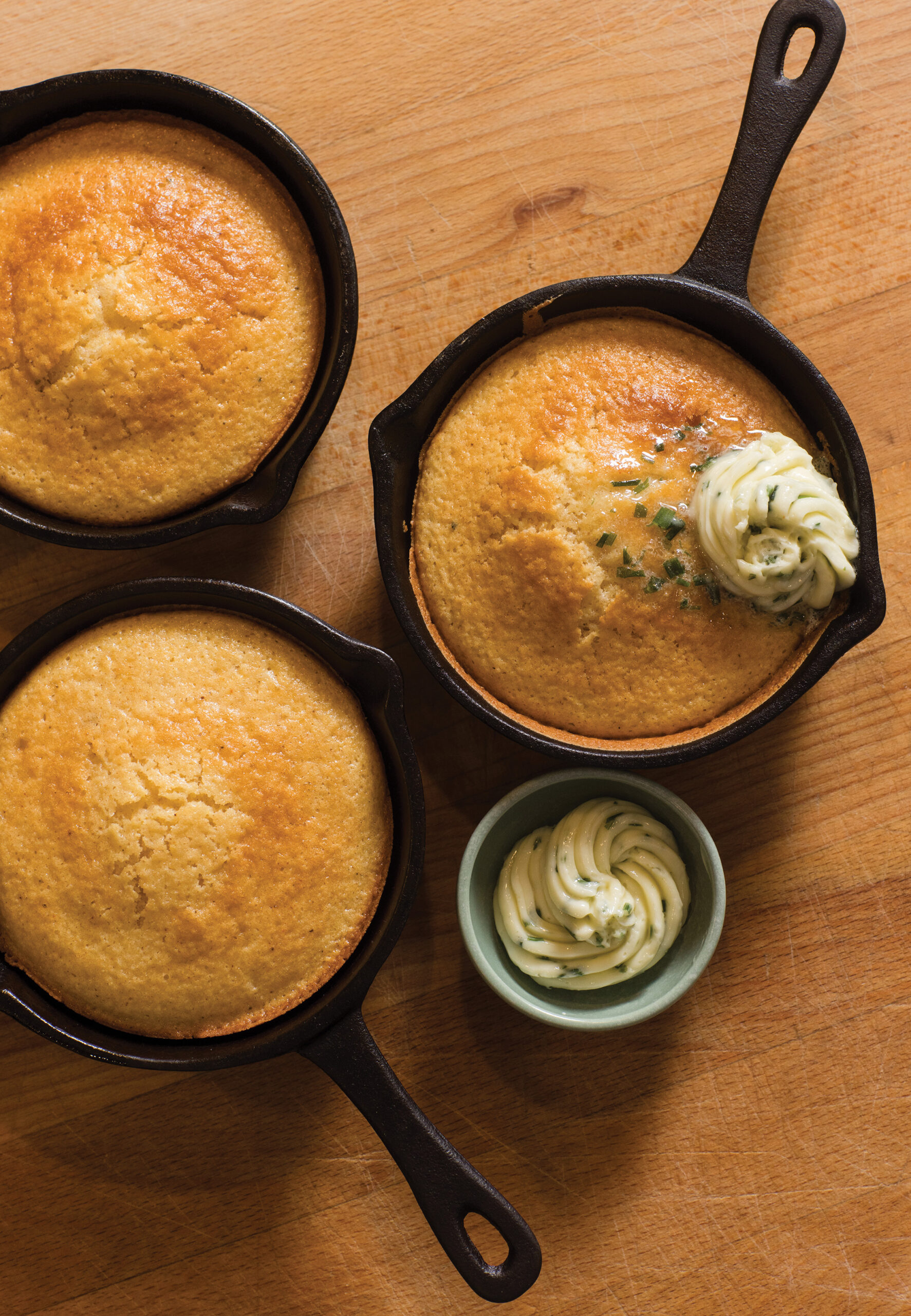
SERVES 8 – 10
1 cup yellow cornmeal
2 1/2 cups all-purpose flour
1 1/4 cups sugar
1 1/4 tablespoon baking powder
1/4 tablespoon of your favorite
creole seasoning
3 eggs
2 cups milk
2 1/2 tablespoons of honey
3/4 cup canola oil
3 tablespoons melted butter, plus more for greasing skillet
1. Preheat oven to 400 degrees. Place either one 12-inch or two 6.5-inch cast iron skillets in the oven.
2. In a large bowl, mix cornmeal, flour, sugar, baking powder and creole seasoning. In a separate bowl, mix eggs, milk, honey and oil together with whisk. Add melted butter and stir to combine, then fold in the dry ingredients.
3. Remove skillets from oven and brush with butter. Pour batter into skillets, leaving 1/2 inch of space from the top. Bake for 15 minutes for 6.5-inch skillets or 20 minutes for a 12-inch skillet, or until top is golden brown and a toothpick inserted into the center comes out clean.

